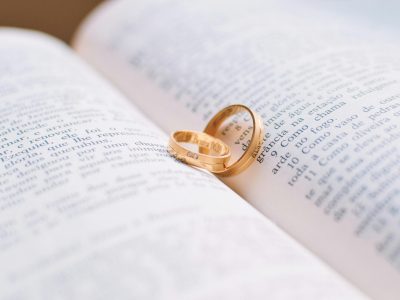INTER-RELIGION COURT MARRIAGE

Inter-religion court marriage is a legally recognized marriage conducted under the Special Marriage Act, 1954, allowing couples from different religions to marry without conversion. This law ensures a secular, lawful, and socially valid union for couples belonging to different faiths, such as Hindu-Muslim, Christian-Sikh, or any other interfaith combinations.
The legal eligibility criteria require that both partners must be of legal marriageable age—18 years for females and 21 years for males—and willingly consent to the marriage. The process involves filing a notice of intended marriage with the marriage registrar, followed by a 30-day notice period during which objections (if any) can be raised. If no objections arise, the marriage is solemnized in the presence of a marriage officer and three witnesses.
The couple must provide identity proof, address proof, birth certificates, passport-size photographs, and an affidavit of marital status. After completing the formalities, the couple is issued a legal marriage certificate, which serves as official proof of marriage.
Inter-religion court marriage ensures legal protection and social security, making it an ideal choice for couples seeking a lawful, unbiased, and seamless marriage process.
Documents required
Identity & Age Proof
Aadhaar Card, Passport, Voter ID, ,Driving License, PAN Card, Birth Certificate, 10th or 12th Marksheet, Passport (for DOB proof) (Any one from each category)
Address Proof
Aadhaar Card,
Passport,
Voter ID,
Ration Card,
Utility Bill (Electricity/Water)
(Any one)
Photographs
4 to 6 recent
passport-sized photos
of both parties
Witnesses (2 or 3 Persons)
Witnesses must have
valid ID proof (Aadhaar, PAN, Passport)
Documents for NRI
Valid Passport, Visa Copy, No Objection Certificate (NOC) from Embassy
Marital Status Proof
Divorce Decree (if divorced), Death Certificate of Spouse (if widow/widower)
Secure Your Appointment
Your Journey to a Legal and Hassle-Free Marriage Starts Here!
Common questions
What is court marriage?
Court marriage is a legal marriage process conducted in front of a marriage registrar under the Special Marriage Act or respective religious laws. It is legally recognized and does not require religious rituals.
Who can apply for court marriage?
Any Indian citizen or foreign national above 18 years (female) and 21 years (male) can apply for court marriage, provided both individuals consent willingly and meet legal eligibility criteria.
What documents are required for court marriage?
The basic documents include:
- Aadhar Card / Passport / Voter ID (as identity proof)
- Birth Certificate / 10th Certificate (for age proof)
- Address Proof (Electricity Bill, Rent Agreement, etc.)
- Passport-size photographs (4-6 copies)
- Affidavit of Marital Status (Single/Divorced/Widowed)
- Witness ID Proof (Two or three witnesses required)
How long does the court marriage process take?
- Under the Special Marriage Act, it takes 30 days (including notice period).
- For Hindu, Muslim, or Christian marriages, it can be done on the same day if all documents are available.
Can an inter-religion couple apply for court marriage?
Yes, inter-religion couples can marry under the Special Marriage Act, 1954, which allows marriage without religious conversions.
Is parental consent required for court marriage?
No, parental consent is not required if both individuals are legally adults (18+ for females, 21+ for males).
Can foreign nationals marry in India through court marriage?
Yes, foreign nationals can marry an Indian citizen or another foreign national in India by providing a valid passport, visa, and NOC (No Objection Certificate) from their respective embassy.
What are the additional requirements for court marriage?
Apart from documents, you may need:
- Two or three witnesses
- Marriage attire (Traditional or Formal)
- Garlands for the ceremony
- Marriage declaration affidavit
Is court marriage legally valid across India?
Yes, court marriage is legally recognized nationwide and holds the same legal status as any religious marriage. The marriage certificate issued by the registrar serves as valid proof.
How can I apply for court marriage?
You can apply by:
- Filling a marriage application form with a marriage registrar.
- Submitting required documents along with witnesses.
- Completing verification and oath-taking in front of the registrar.
- Receiving your legally valid marriage certificate after successful registration.
